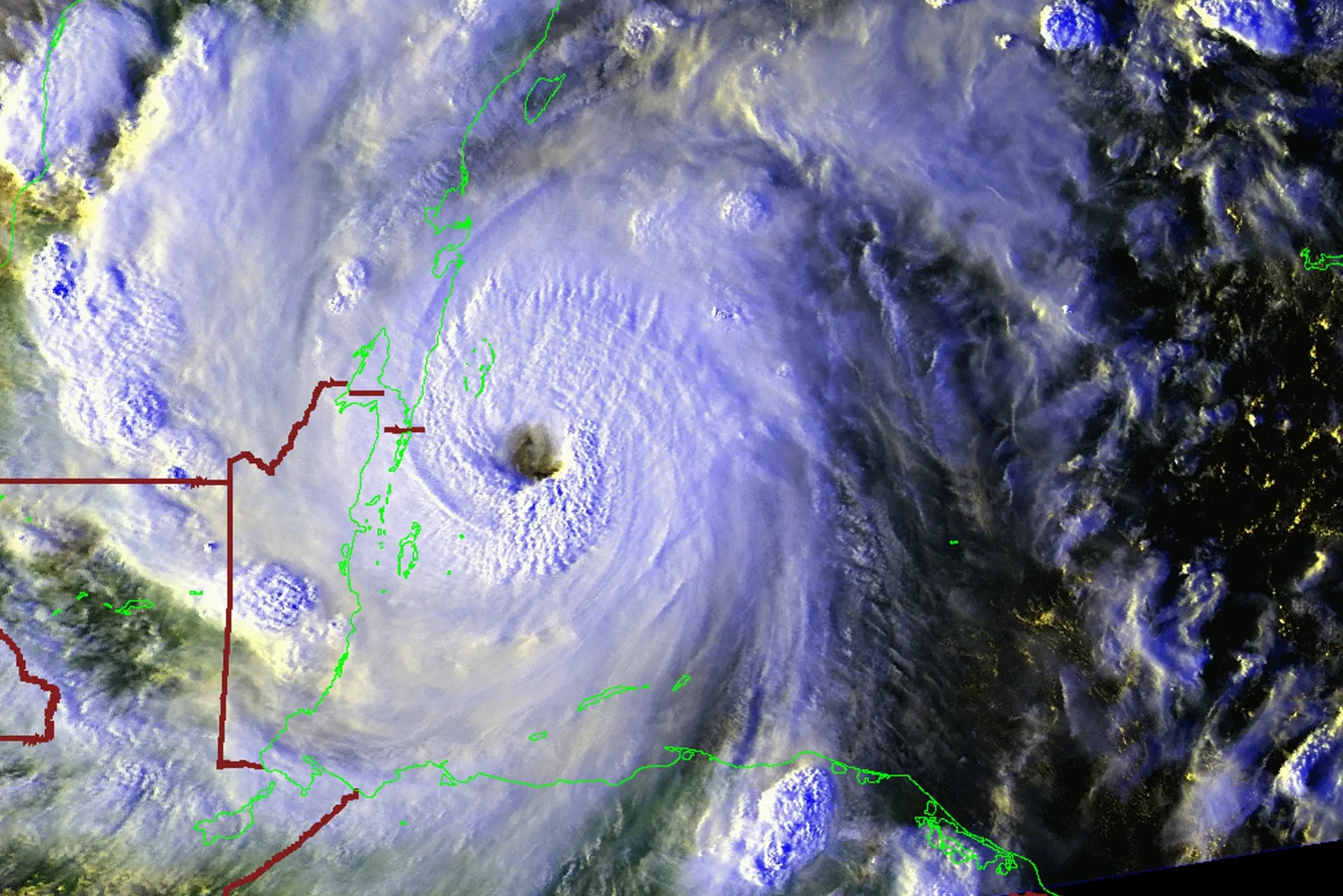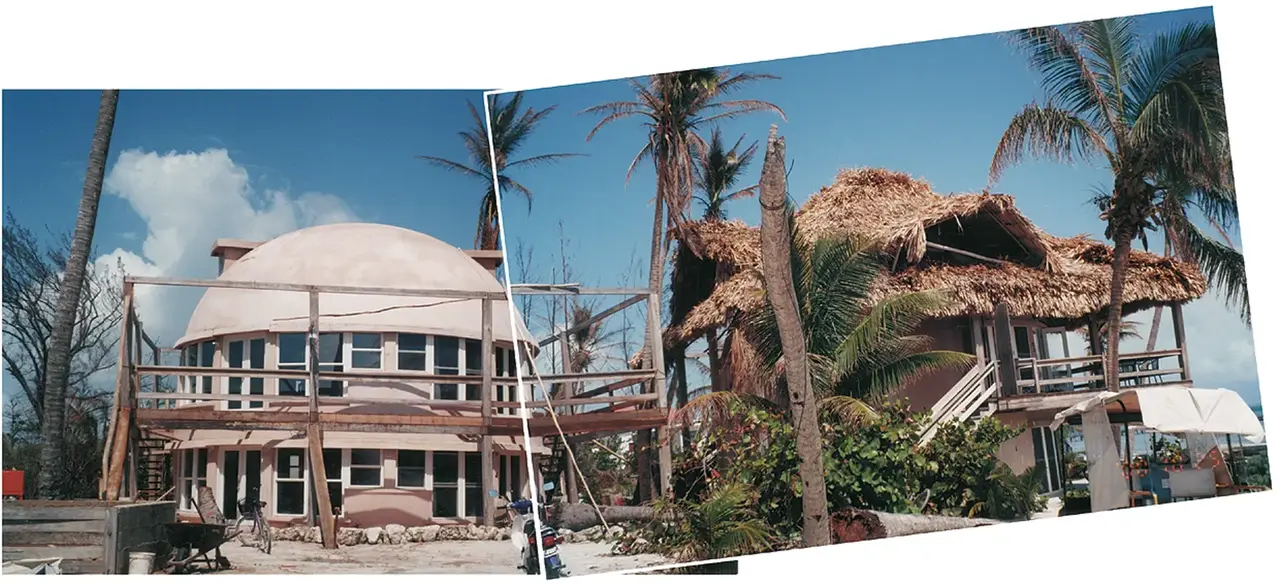Hurricane Keith Huffed and Puffed and …

Satellite image of Hurricane Keith on September 30, 2000. The clearly defined eye-wall is directly east of the Xanadu Resort. The hurricane continued directly west, over the resort and Belize. The storm lingered over the area for three days.
Like the wolf of Three-Little-Pigs fame, Hurricane Keith huffed and puffed and literally blew homes down, but unlike our fairy tale wolf, Keith didn’t stop there. From Friday, September 29 to Sunday, October 1, 2000, Keith—a force 4 hurricane with winds up to 135 mph—raged over Ambergris Caye off the coast of Belize in the Caribbean Sea. With the ease of a giant weeding his garden, Keith uprooted trees, flattened buildings, overturned aircraft, and jettisoned boats onto rocks. Meanwhile, the severe, three-day rains Keith brought with him caused floods and mudslides, swept jetties away, and downed power lines.
Two Monolithic Domes endured and survived Hurricane Keith’s rampage virtually unscathed! They are the Monolithic Domes at the Xanadu Island Resort owned and managed by Ivan and Judy Sheinbaum on Ambergris Caye.

Aftermath photographs of Xanadu Island Resort in Belize just south of San Pedro on the Yucatan Peninsula. Hurricane Keith lingered over the island for three days. Its forceful winds uprooted trees, flattened homes and downed power lines. Aside from losing the roof thatching, the Monolithic Domes were undamaged.
In a phone conversation we had with Ivan on October 10, he said, “The [hurricane’s] eye stayed over Ambergris Caye and the town of San Pedro for three days. The rain fell horizontally and it too was traveling at 135 mph, breaking windows everywhere.”
Ivan said that they boarded up Dome One with hurricane shutters after hearing weather reports predicting Keith would attack from the northwest. Then, all the people staying there, plus some neighbors, retreated to the upper level or loft of Dome Two, the south unit.
“We were all in the loft part of the dome. I didn’t feel a thing, no movement at all. With the windows closed, we couldn’t even hear anything,” said one neighbor who asked to remain anonymous since the island’s department of tourism is discouraging “negative reports.”
“Yes, there was a lot of damage,” the neighbor continued. “It blew the roof off our house and blew away sections of sheet rock. All our furniture and stuff got soaked. Lots of other hotels, not all of them, but those with tile roofs had the tiles blown right off.”
“Trees were stripped of leaves. Coconut trees were just popped in half. It looked like a bomb had dropped on the island. I think that we were lucky not to have lost our lives in a hurricane like this one. It stayed over us for three days. I would really recommend those domes,” the neighbor concluded.
When we spoke with Ivan, some nine days after Hurricane Keith finally left Belize, he said, “There is absolutely no electricity on the island. It is totally black at night. Planes are flying in and out, but only in daylight.”
Then, on October 17, Ivan sent us an e-mail, which, in part, reads:
We have been working furiously…to get cleaned up and running again.
The domes themselves are undamaged. The palm thatch roofs that we had constructed over them for aesthetics and shade were damaged; they will have to be rebuilt. At the end of our pier, another thatched roof was sheared off its support poles…. The back half of our property, about 1.5 acres of virgin trees, bush and palm, like a mini rain forest and really beautiful, has been decimated! Lots of trees are down and there isn’t a leaf left on any bush or tree!
According to an article in the October 8 Belize Reporter, the National Emergency Management Organization (NEMO) estimates damages caused by Hurricane Keith will reach US$200 million, with San Pedro and Caye Caulker as the hardest hit areas. But, miraculously, only two human causalities were, at that point, confirmed.
Reprinted from the Winter 2000 issue of the Roundup: Journal of the Monolithic Dome Institute